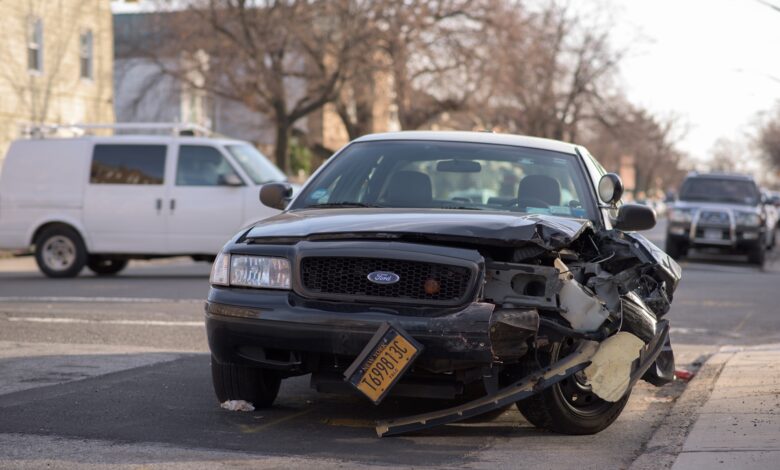8 Ways to Protect Yourself After a Car Accident

On the road, while behind the wheels of your car, is among the most frightening and unexpected places you could become. Because there are so many other drives and external influences in your environment, anything could happen in a single second. Car accidents often happen out of nowhere and with no notice, which makes them terrifying. They can potentially cause significant injury to you or your passengers, as well as severe accidental damage. A dual-camera dash cam could be your best trustworthy — and, in many cases, only — witness to proving it wasn’t your responsibility after a car collision. While some incidents are unavoidable, you can take precautions to avoid harm.
You’ll have to keep your emotions in check under challenging circumstances so you can take the essential precautions to protect yourself and many others. Breathe deeply with smaller inhales and longer exhales if you’re feeling stressed.
Here are a few things you can do to make sure you’re doing everything you can to avoid a car accident:
Get off the Road
The security of individuals engaged, as well as anyone else in the vicinity, comes first. Taking the cars off the road protects everyone concerned from further injuries or damage.
Related: The Best Cheap Car Insurance in New Mexico
Check for Injuries
Look to see whether everybody in your car is okay, and don’t delay to phone 911 if you or any of your occupants require emergency care. If everyone in your vehicles has been checked and determined to be safe, it is recommended that you check on people in other vehicles involved and offer aid if available. At this stage, don’t be concerned with assigning guilt; instead, focus on the well-being of anyone concerned.
Record any proof
Cameras and cellphones are excellent tools for documenting it all at the accident site, such as the position of the automobiles, passengers, any damage, and the surrounding environment. To verify correctness, you might photograph papers such as health insurance cards and driving licenses. Traffic and weather situations, for example, can be recorded using videos.
The next step is to gather data on the accident. It’s a good idea to jot down or document all of the things you recall ASAP while they’re still memorable. Make a list of the following:
- The collision occurred on this date and at this time.
- The setting
- Climate, sight, and traffic conditions were all factors in determining which way each car was traveling.
- Personal recollections of the accident
- Photographs of both the automobiles and the damage
- Photographs of apparent wounds
Inform Your Insurance Carrier
Reporting the collision to your insurance company as soon as possible is critical to begin the process of recovery for both health and financial injuries. Nevertheless, you need not try to make a phone call during driving.
Do Not Sign Any paper
Signing something, particularly declarations about fault or releases of someone else’s fault, may jeopardize your capacity to seek legal remedies.
Require medical help. If you incur an injury, irrespective matter how minor it appears to be, see a doctor. Being informed about your health and dealing with medical specialists will help you recover physically and document that you seek and receive care.
Related: What to do after a Car Accident in NYC?
Seek legal counsel
Insurance carriers frequently repay their customers far less than they are entitled to. While they are a vital part of the process, getting legal counsel can help you achieve the best possible result by delving into the specifics and evidence of a case to identify who is responsible and maximize recoveries. You can also avoid the hazards of settling your case for a rapid payoff, which will most certainly compromise your capacity to make future claims related to the accident if you counsel an attorney.
Be Alert
It is strongly advised that you do not discuss your accident with anybody other than your legal counsel, as whatever you say could be used against you and is frequently recorded. It’s usually a good idea to steer clear of interactions that haven’t been addressed with and approved by your attorney.
Keep a diary
It’s a good idea to keep track of everything during the process, especially follow-up discussions about the accident, doctor appointments, and so on. Keeping a clear record of these transactions can help you stay organized and even aid your case if legal action is taken.
Even “small” collisions can cause catastrophic injuries such as ligament sprains. If not treated properly, this can lead to persistent pain and impairment. Early therapy is the most remarkable approach to avoid long-term effects, according to the study. Chiropractic care is helpful as they aid in the restoration of your nervous system’s healthy, proper function without using medicines or surgery.
Related: How to Protect Children from Injuries in Car Accidents
The following are some of the symptoms noticed in vehicle accident victims:
- Chronic Pain
- Headache
- Jaw Ache
- Pain in the lower back
- Radicular Pain in the Neck
- Shoulder Ache
- Thoracic Outlet Syndrome (TOS)
Conclusion
Car accidents are hard to stop due to their abrupt and sheer unpredictability, yet adopting the methods outlined above will help you reduce your chances of being involved in one. Even if you follow all of the rules, you may still be unable to avoid an accident.












8 Comments